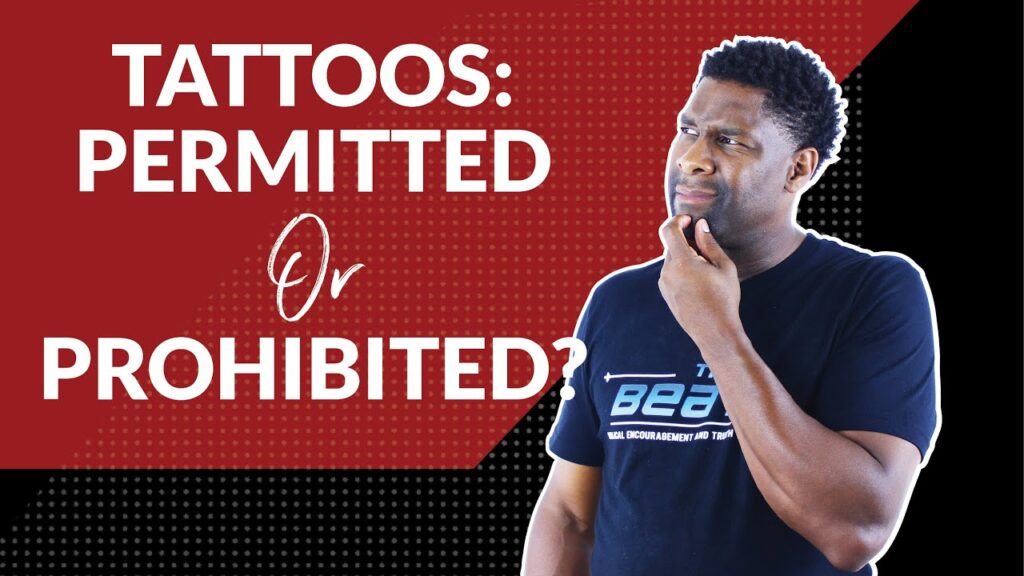In today’s discussion on whether Christians should get tattoos, Allen Parr provides insight from a biblical perspective. Leviticus 19:28 is often referenced as a prohibition against tattoos, but context is vital in understanding the command given to Israel. It is crucial for individuals to consider their motivations, message, potential for lust, and long-term implications before deciding to get a tattoo. While there may be instances where tattoos are considered sinful, there is no clear prohibition in the Bible for Christians.
Allen Parr’s video aims to shed light on this controversial topic and encourages viewers to think before making a decision about getting a tattoo. By focusing on the heart rather than outward appearance, and using tattoos as a conversation starter for sharing the gospel, Christians can navigate this issue with discernment and grace.

Overview of Christian Views on Tattoos
If you’ve ever wondered whether it’s acceptable for Christians to have tattoos, you’re not alone. The perspective on tattoos for Christians can vary, with some people strongly opposing them while others see no issue with them. One prominent voice on this topic is Allen Parr, who has shared his insights on whether Christians should get tattoos from a biblical viewpoint. By delving into the issues surrounding tattoos from a Christian perspective, we can gain a better understanding of the considerations involved.
Interpreting Leviticus 19:28
When exploring the biblical stance on tattoos, Leviticus 19:28 often serves as a reference point. This verse appears to prohibit tattoos, stating, “You shall not make any cuts in your body for the dead nor make any tattoo marks on yourselves: I am the Lord.” However, understanding the historical context behind this commandment is crucial. The prohibition in Leviticus was given to Israel to prevent them from reverting to pagan practices prevalent in the ancient world.
Considerations Before Getting a Tattoo
Before deciding to get a tattoo, there are several essential factors to consider. Your motivations for getting a tattoo play a significant role in determining whether it aligns with Christian values. Additionally, the message and symbolism behind the tattoo should reflect values that resonate with your beliefs. It’s also essential to consider the potential for negative influences such as lust that may come from certain tattoo designs. Moreover, reflecting on the long-term implications of a tattoo is key to making an informed decision.
Biblical Perspective on Tattoos
While some Christians view tattoos as inherently sinful based on Leviticus 19:28, there is a lack of a clear prohibition on tattoos in the Bible for Christians. This gray area in biblical teachings regarding tattoos leaves room for interpretation and personal discernment. By examining the absence of explicit directives against tattoos in the New Testament, one can explore the nuances of the biblical perspective on this topic.
Positive Approaches to Tattoos for Christians
Rather than seeing tattoos as inherently problematic, some Christians view them as a potential tool for starting conversations about faith. Using tattoos as a conversation starter to share the gospel can be a creative and impactful way to engage with others. By promoting positivity and inclusivity in discussions about tattoos among Christians, individuals can foster a more nuanced and open dialogue on the subject.
Avoiding Judgment Based on Outward Appearance
Central to the Christian faith is the value of looking beyond outward appearances and focusing on the heart. Christians are encouraged not to judge others based on their tattoos or any other external factors. Understanding that God sees the heart and values inner character over external adornment can help cultivate a non-judgmental and compassionate attitude towards others.
Personal Freedom and Responsibility
While Christians have personal freedom to make choices, such as deciding whether to get a tattoo, they also bear responsibility for their decisions. Considering individual freedom in decision-making regarding tattoos is crucial, but it’s essential to weigh the potential consequences and implications of those choices. Highlighting the responsibility that comes with personal choices, including getting a tattoo, fosters a sense of accountability and mindfulness.
Cultural and Societal Factors
Examining the influence of culture and society on attitudes towards tattoos can provide insights into the broader context in which decisions about tattoos are made. Christians navigating societal perceptions while making decisions about tattoos may encounter varying viewpoints and expectations. By considering cultural and societal factors, individuals can make informed choices that align with their beliefs and values.
Reflections on Christian Values and Principles
Reflecting on how tattoos align or conflict with Christian values and principles can guide individuals in making decisions about getting a tattoo. Considering whether a tattoo reflects values such as love, compassion, and integrity can help ensure that it aligns with one’s faith. Encouraging thoughtful reflection and engagement with the topic within the Christian community can foster a deeper understanding of the intersection between tattoos and Christian values.
Conclusion
In conclusion, the topic of Christians getting tattoos is multifaceted and nuanced. By examining different perspectives, including Allen Parr’s insights and biblical interpretations, individuals can gain a comprehensive understanding of the considerations involved. Encouraging respectful dialogue and consideration of diverse perspectives on the issue can help foster a more compassionate and inclusive approach to the discussion of tattoos among Christians. Ultimately, making an informed decision about getting a tattoo involves thoughtful reflection, consideration of motivations, and alignment with personal values and beliefs.